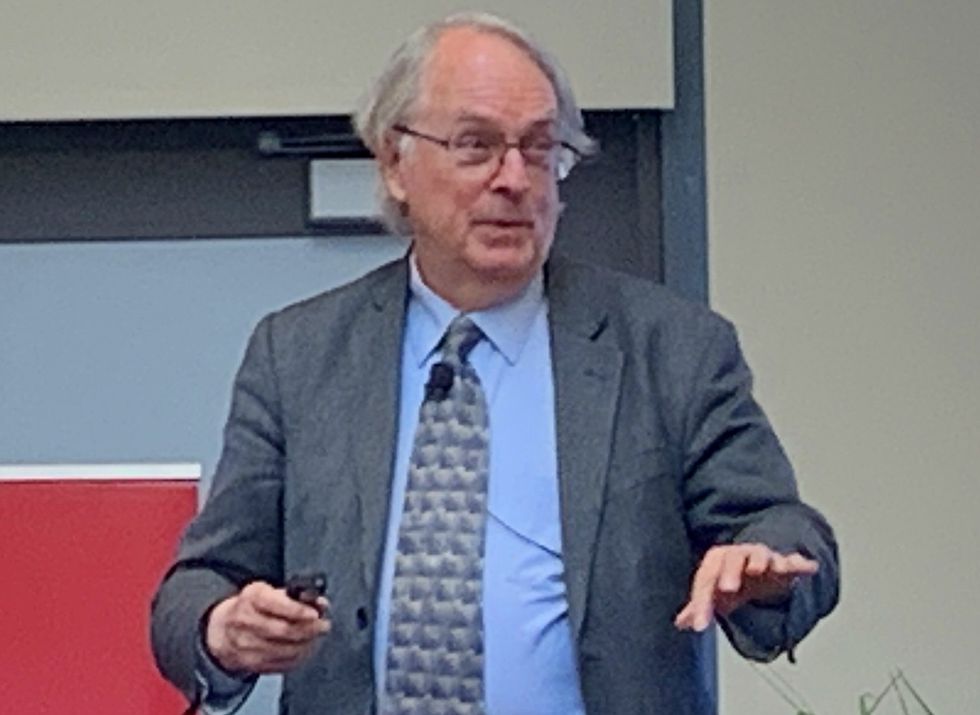Lithium Battery Ripe for Disruption, Inventor Says
[ad_1]
The lithium-ion battery isn’t going wherever quickly. That’s what M. Stanley Whittingham, the Nobel laureate who created the primary rechargeable lithium-ion battery some 50 years in the past, advised attendees of the SLAC-Stanford Battery Analysis Middle Launch Symposium on Thursday. The brand new group goals to bridge gaps between organizations that analysis, manufacture, and deploy large-scale power storage methods.
 M. Stanley Whittingham
M. Stanley Whittingham
It’s going to be at the very least five-to-ten years earlier than any various applied sciences can compete on price with lithium-ion know-how, Whittingham predicted.
Granted that this know-how stays the incumbent for a while to return, Whittingham has considerations—huge considerations—about how the world makes and makes use of these power storage gadgets. Listed below are the massive points he worries about:
Manufacturing
It’s ridiculous that manufacturing applied sciences haven’t modified in 30 years, Whittingham says. “We have to cut back the 60 to 80 kilowatt hours) of electrical energy it takes to supply a one kWh battery,” he says. “We’ve obtained to search out new manufacturing applied sciences.”
Recycling
Whittingham can be frightened about recycling applied sciences. He’s inspired that amenities to recycle lithium-ion batteries are being constructed world wide, however he provides, “We’d like to ensure they’re clear.”
Mining
The availability chain for the minerals utilized in battery manufacturing within the first place additionally want work. “We’d like regional provide chains,” Whittingham says. And “we have to take a look at clear mining with clear power.”
Heavy Metals
Provided that some parts of a lithium-ion battery’s conventional chemistry are inherently poisonous, they should be engineered out of the gadget as quickly as attainable, Whittingham says. He put it bluntly: “Cobalt should go!”
The Exploding Battery Nightmare
“We are able to’t have low-cost junk on the market,” Whittingham says. He referred to as for a U.S. federal authorities mandate requiring that every one merchandise that incorporate lithium-ion batteries by authorized by Underwriters Laboratories or an equal testing and certification group.
Security Myths
“Please don’t say [solid state is] safer till we show that it’s safer!”
—M. Stanley Whittingham
With a lot consideration being paid lately to the chances of solid-state batteries, Whittingham factors out that some claims for the know-how are overblown, that’s, stable state chemistries are usually not essentially safer than liquid chemistries, and carry their very own dangers, given they incorporate much more lithium. “For those who go to stable state,” he says, “please don’t say it’s safer till we show that it’s safer!”
From Your Website Articles
Associated Articles Across the Net
[ad_2]
No Comment! Be the first one.